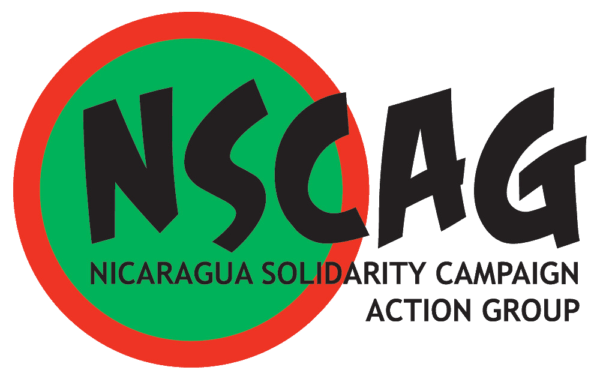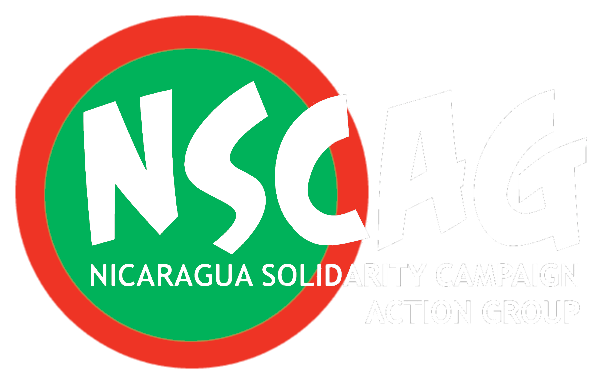Nicaragua Solidarity Campaign Action Group
14 February 2025
Nicaragua: Yes to social progress, No to US sanctions
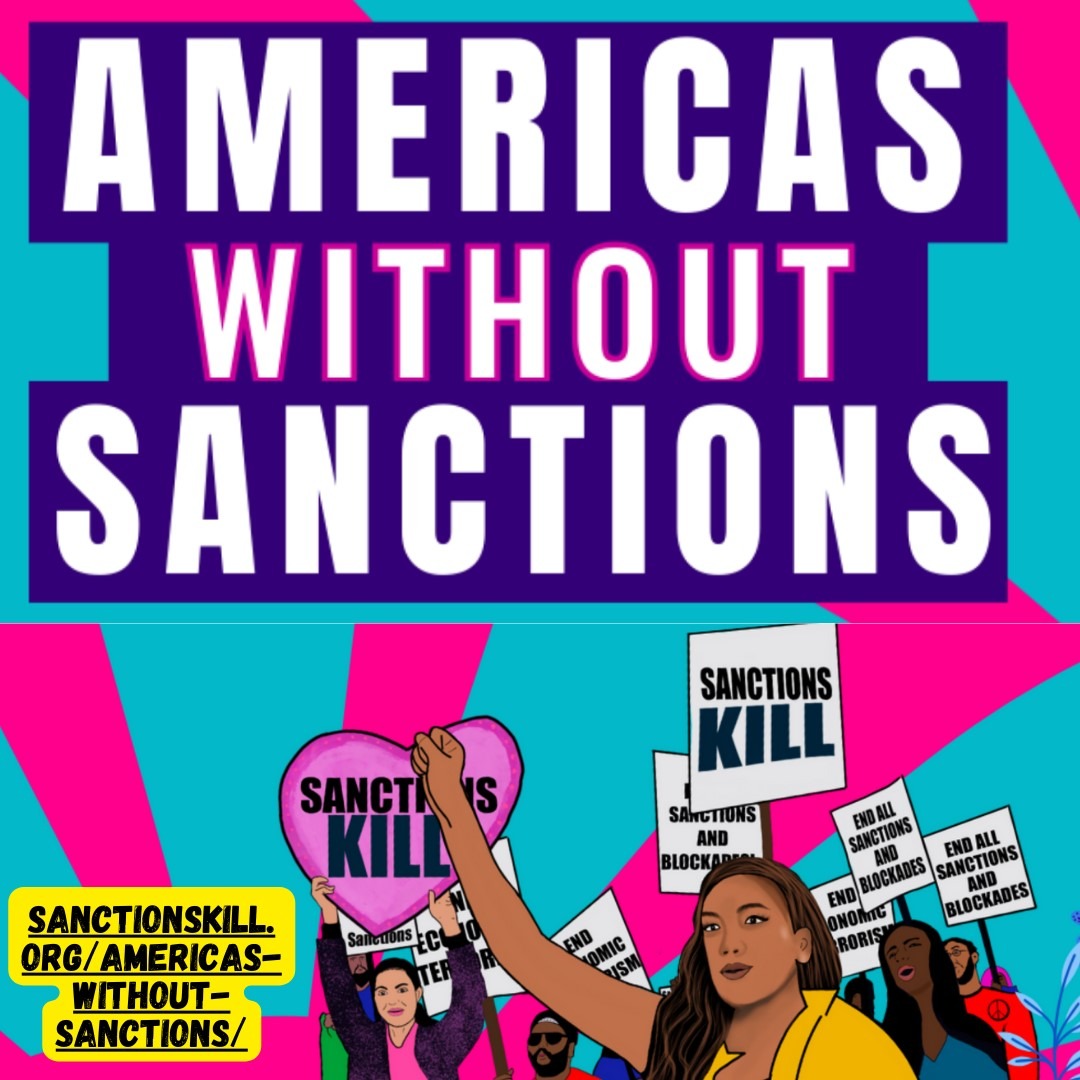
On 22 November, President Biden decided that Nicaragua still poses an “unusual and extraordinary threat to the national security and foreign policy of the United States.”
In doing so he repeated this annual designation from the last Trump administration and will now continue with greater ferocity.
US exceptionalism: if the ICJ finds you guilty walk out and refuse to pay reparations
However, the first “unusual and extraordinary threat to the national security and foreign policy of the United States” allegedly posed by Nicaragua goes back to the 1980s when the Reagan administration imposed a trade embargo during the brutal contra war. Both actions were declared illegal by the International Court of Justice (ICJ) in 1986; the US refused to recognise the jurisdiction of the ICJ over the case and to pay Nicaragua US$17bn in reparations.
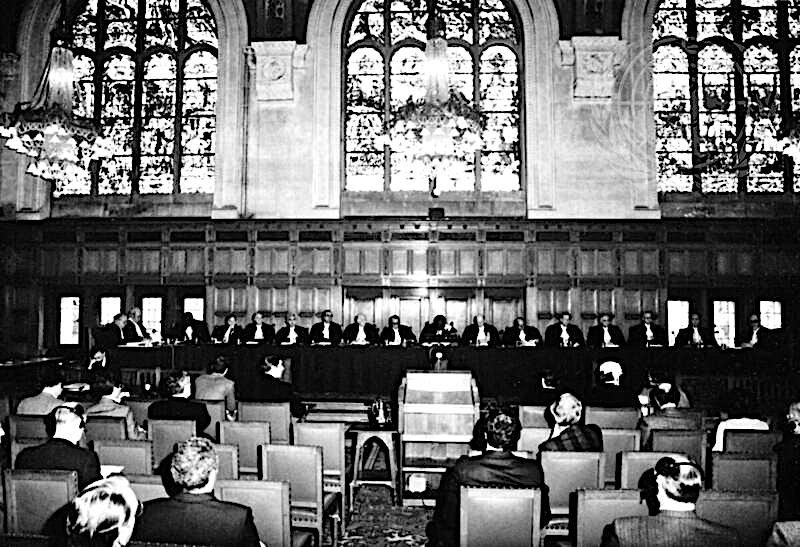
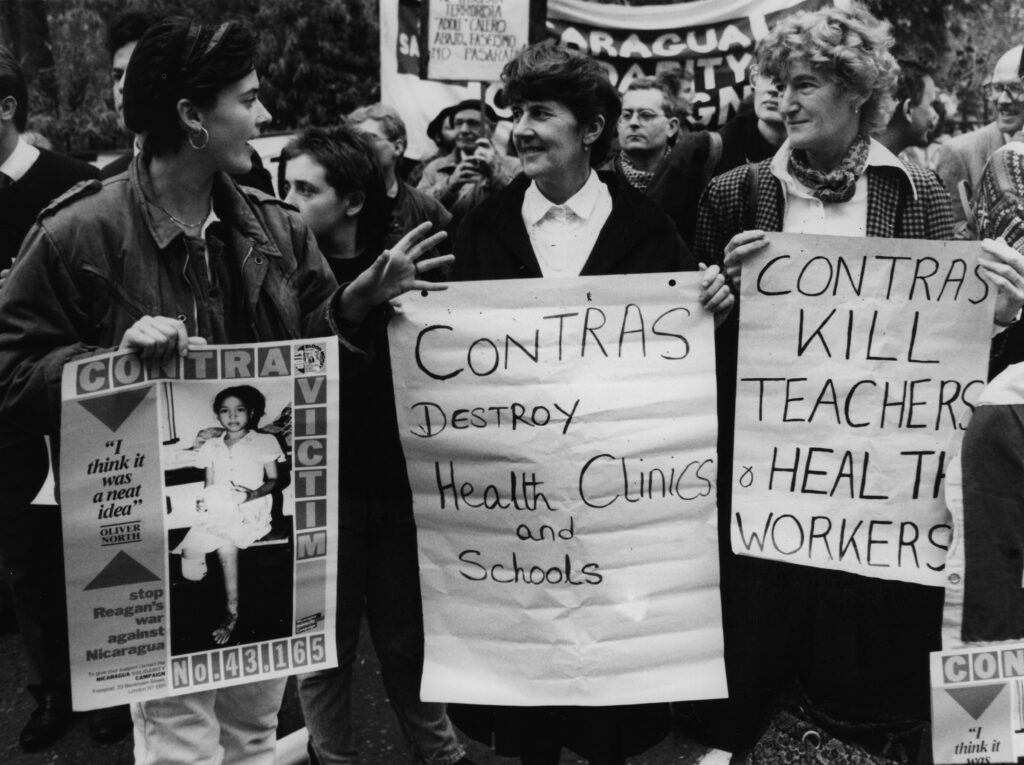
What ‘sin’ has Nicaragua committed?
The ‘sin’ of the Nicaraguan people whether in 1984 or 2021 is to elect Sandinista governments. If they choose to do so the punishment will predictably be attempts to use all means possible short of direct invasion to strangle the country, overthrow the government and impose its own version of democracy. Whatever the government in Washington, however murky and morally reprehensible, the means justify the end.
The Sandinistas returned to power in elections in 2007, inheriting a country in a state of abysmal neglect after a series of 17 years of US backed neo-liberal governments.
How has the Sandinista government gone about reducing high levels of poverty?
The new government set about implementing a political programme prioritising poverty reduction, a programme brutally cut short in the 1980s by the contra war and trade embargo that left more than 30,000 deaths and economic collapse.
Underpinning this commitment is a pragmatic determination to build economic stability, avoiding the catastrophic hyperinflation of the 1980s. This has meant expanding and diversifying export markets, securing loans from international institutions, encouraging private sector investment, and strengthening internal tax collection.
This economic stability has enabled the government to implement well integrated, holistic poverty reduction programmes based on recognising the economic, social and cultural rights of the majority: the rights to food, education, health care, housing, and gender equality. This includes:
- universal free community based health care with 24 new hospitals, 182 maternity homes, over 3,000 health centres, and dramatic decreases in maternal and child mortality.
- universal, free education from preschool to universities and technical colleges
- food sovereignty: 85% of Nicaragua’s basic foods are grown within the country
- gender equality with Nicaragua ranking first globally for women in cabinet positions and parliament, and women’s educational achievement
- extensive infrastructure programmes: roads, ports, electricity, sewerage
- communal land titles for a third of national territory in recognition of the rights of indigenous and Afro-descendant peoples
- an increase in renewable energy from 25%-75%
- an extensive programme of social housing and recognition of property rights
All this has been achieved against enormous odds: US sanctions, two major hurricanes, the pandemic, the climate crisis and the attempted coup in 2018.
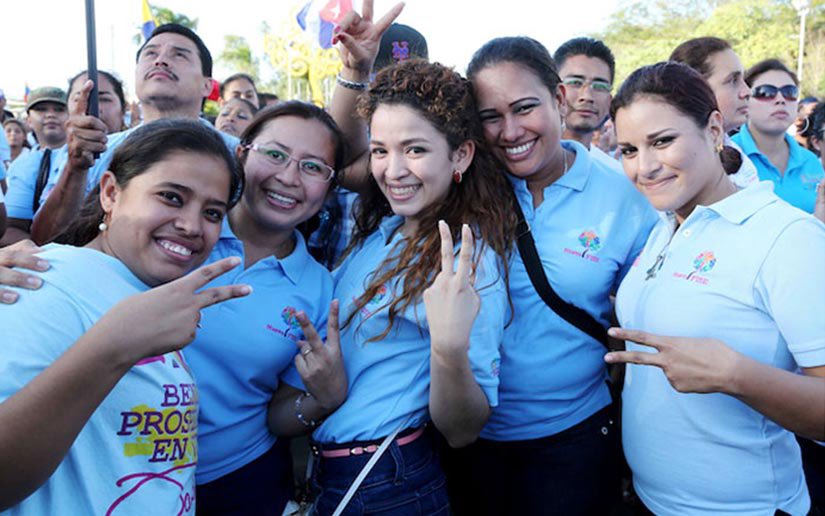
So what makes Nicaragua (population 6.8 million) so dangerous in the eyes of the US?
Why the US designation of Nicaragua as an “unusual and extraordinary threat to the national security and foreign policy of the United States, ”a country with the highest military budget in the world whose southern border is 2,000 miles away?
The pretext of the US for this designation and resulting sanctions (illegal coercive measures) goes back to the 2018 US instigated coup attempt whereby the US pumped millions of dollars into NGOs and other opposition groups in an attempt to oust the country’s democratically elected government. In three months more than 250 people were killed (including 22 police officers), and over 2,000 were injured. Misinformation spread through the social media fanned the flames of this violence.
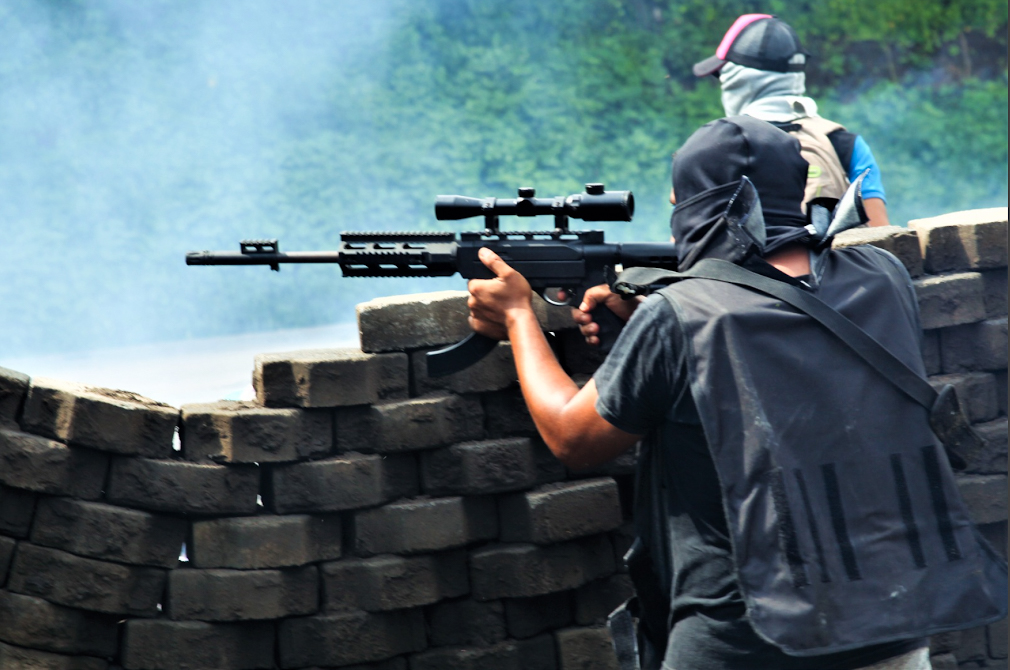
With their US dollars the opposition unleashed a campaign of violence and terror burning schools, hospitals and other government buildings, marking the homes of government supporters, and terrorising whole communities trying to pass through their road blocks (see above). All this destruction caused an estimated US$1 billion in economic damages.
What illegal coercive measures (sanctions) has the US imposed on Nicaragua?
After the failed coup the US started imposing a raft of sanctions on Nicaragua on the pretext of alleged government human rights abuses. This message was bolstered by the international human rights industry who weighed in on the narrative. It has also become the narrative of the mainstream media designed to discredit Nicaragua.
Sanctions against Nicaragua have taken three forms. Firstly, the sanctioning of individuals such as cabinet members, MPs, Sandinista mayors, the chief of police and the head of the judiciary. This means the freezing of assets and a ban on travel to the US. Secondly, obstructing international financial transactions; and thirdly, preventing Nicaragua’s access to financing by international lending institutions.
Consequently Nicaragua lost over US$1.4 billion between 2018 and 2021, amounting to 90% of its potential funding from international institutions. This has impacted the development of the Caribbean coast, school lunch programmes for vulnerable children, child development programmes, and rural development and infrastructure programmes.
The most recent Act named the ill named ‘Restoring Sovereignty and Human Rights Act‘ (this Act had not been approved by Congress or ratified by President Biden before the change of government) goes further by proposing a prohibition on ‘imports from and exports to Nicaragua of products determined by the administration; a ban on investment by a “United States person” in any sector of Nicaragua’s economy as determined by the administration; and initiating measures to remove Nicaragua from DR-CAFTA, the regional trade agreement. This Act has nothing to do with the human rights of the majority of Nicaraguans and everything to do with ‘regime change’.
US Secretary of State Marco Rubio declares Cuba, Venezuela and Nicaragua ‘enemies of humanity’
In the first week of February Rubio visited Central America and the Dominican Republic to lay claim to the Panama Canal and bolster support in countries identified as allies.
At a press conference in Costa Rica Rubio accused Nicaragua, Venezuela, and Cuba of being ‘enemies of humanity’ and causing the migration crisis in the region.
Never one to understate his case Rubio went on to claim that “if it were not for these three regimes there would not be a migration crisis in the (Western) hemisphere.”
Rubio elaborated further that because Nicaragua is ‘not a democracy’ the US would consider expelling the country from DR-CAFTA.
This would have severe consequences for Nicaragua’s economy with more than 50% of the country’s exports going to the US. However, under the terms of DR-CAFTA expelling a country cannot be done through a flourish of Trump’s pen but requires the unanimous agreement of all countries involved. An additional factor, that even Rubio has acknowledged, is that any attempt to expel Nicaragua would destabilise the whole region.
How Cuba, Venezuela and Nicaragua have reacted to ‘enemies of humanity’ accusations
President Daniel Ortega stated that US policies represent…”the suffering, death and pain of millions of human beings who have lived and are living through the hell of imperialism.” He went on to quote a line from the Sandinista anthem that refers to the ‘Yankee, the enemy of humanity.’
Cuban President Miguel Dias-Canel stated “It’s proven that the migration exodus in Cuba is proportional to the tightening of the blockade which deprives our people of essential goods. Humanity is endangered by your neo-fascism.”
Venezuelan foreign minister Yvan Gil said “the only enemies of humanity are those who, with their war machinery and abuse, have spent decades sowing chaos and misery in half the world.”
More than forty years on from Reagan’s illegal war against Nicaragua, the US war in the form of sanctions (also illegal under international law) are nothing more than another way to discredit and destabilise the country, impoverish the impoverished, and instigate regime change.
Our united solidarity with Nicaragua and progressive forces and governments across the region could not be more urgent.
.
